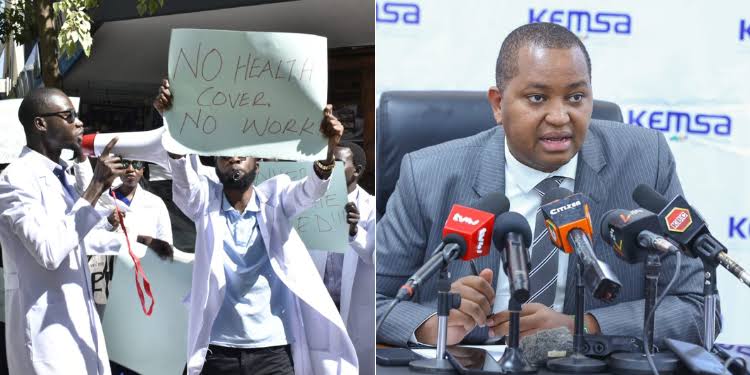After weeks of turmoil and strained healthcare services, Kenya finally sees a glimmer of hope as the doctors’ strike comes to an end. The deadlock between the government and healthcare personnel, which had paralyzed medical services across the country, has been broken with a mutually beneficial agreement.The strike, initiated by the Kenya Medical Practitioners, Pharmacists, and Dentists Union (KMPDU), stemmed from longstanding grievances regarding inadequate pay, poor working conditions, and a lack of essential medical supplies.

These issues have plagued Kenya’s healthcare system for years, leading to a significant brain drain as skilled medical professionals sought better opportunities abroad.The impact of the strike was felt nationwide, with hospitals and clinics struggling to provide even basic medical care to patients. Lives were at risk, and the public outcry for a resolution grew louder with each passing day.
In a pivotal moment, representatives from the government and the KMPDU engaged in intensive negotiations mediated by independent arbitrators. Both sides recognized the urgent need to find common ground and prioritize the health and well-being of Kenyan citizens.

Key aspects of the agreement include:
Salary Increments: Healthcare personnel will receive significant salary increments, bringing their pay closer to what they deem fair compensation for their crucial role in society. This move aims to address the issue of low wages, which have contributed to dissatisfaction and demotivation among medical professionals.
Improved Working Conditions: The government has committed to enhancing working conditions in public healthcare facilities, including adequate staffing levels, access to essential medical supplies, and infrastructure improvements. This measure is expected to boost morale among healthcare workers and improve the quality of care for patients.
Dialogue Mechanisms: Both parties have agreed to establish sustainable dialogue mechanisms to address future grievances promptly. Open communication channels will enable timely resolution of issues, preventing the escalation of conflicts that disrupt healthcare services.

Professional Development: The agreement includes provisions for continuous professional development and training opportunities for healthcare personnel. Investing in the skills and knowledge of medical professionals is crucial for maintaining high standards of healthcare delivery in Kenya.
The resolution of the doctors’ strike marks a significant step forward for Kenya’s healthcare system. It demonstrates the power of constructive dialogue and negotiation in resolving complex issues that threaten public health and safety.
However, the work does not end here. Implementing the terms of the agreement effectively and sustainably will be key to ensuring lasting improvements in Kenya’s healthcare sector.Both the government and healthcare personnel must remain committed to their obligations to uphold the rights and well-being of all Kenyan citizens.

As the country emerges from this challenging period, there is renewed hope for a healthcare system that truly serves the needs of its people. By prioritizing collaboration, accountability, and investment in healthcare infrastructure and personnel, Kenya can build a brighter future where every citizen has access to quality medical care when they need it most.




